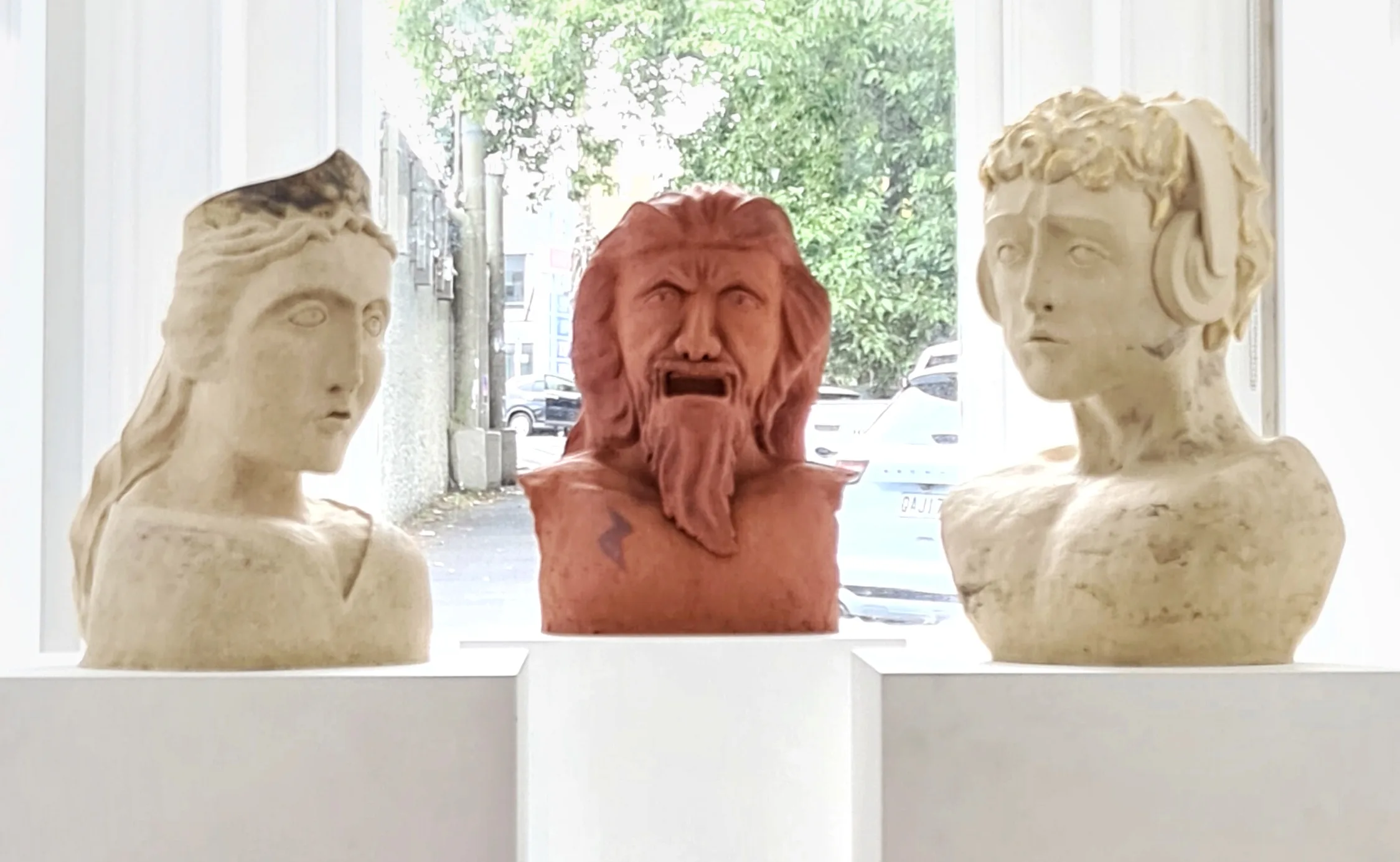Location: Studio One Toi Tū, Auckland
Dates: Dec 2023 – Jan 2024
In Stark Voices I present a short written work with ceramic forms. I have taken Greek Tragedy and Classical Sculptural ideas mixed with modern-day social media posts to reflect on how we communicate in public online spaces. Given the founding of Western Democracy 2500 years ago with the right to free speech, how do we treat our own voice, and others in debate now? Are facts relevant anymore? Are influencers the new gods?
Dialogue for the Gods on Mount Olympus, for the opening of the Play and the Chorus Ode are all original.
Speeches from the Assembly are all from Twitter or Reddit discussions, predominantly in NZ. Names and some of the references have obviously been changed to fit with our setting. Grammar and punctuation as originally posted. The conversations are collated from various posts, but these are all in the public domain.
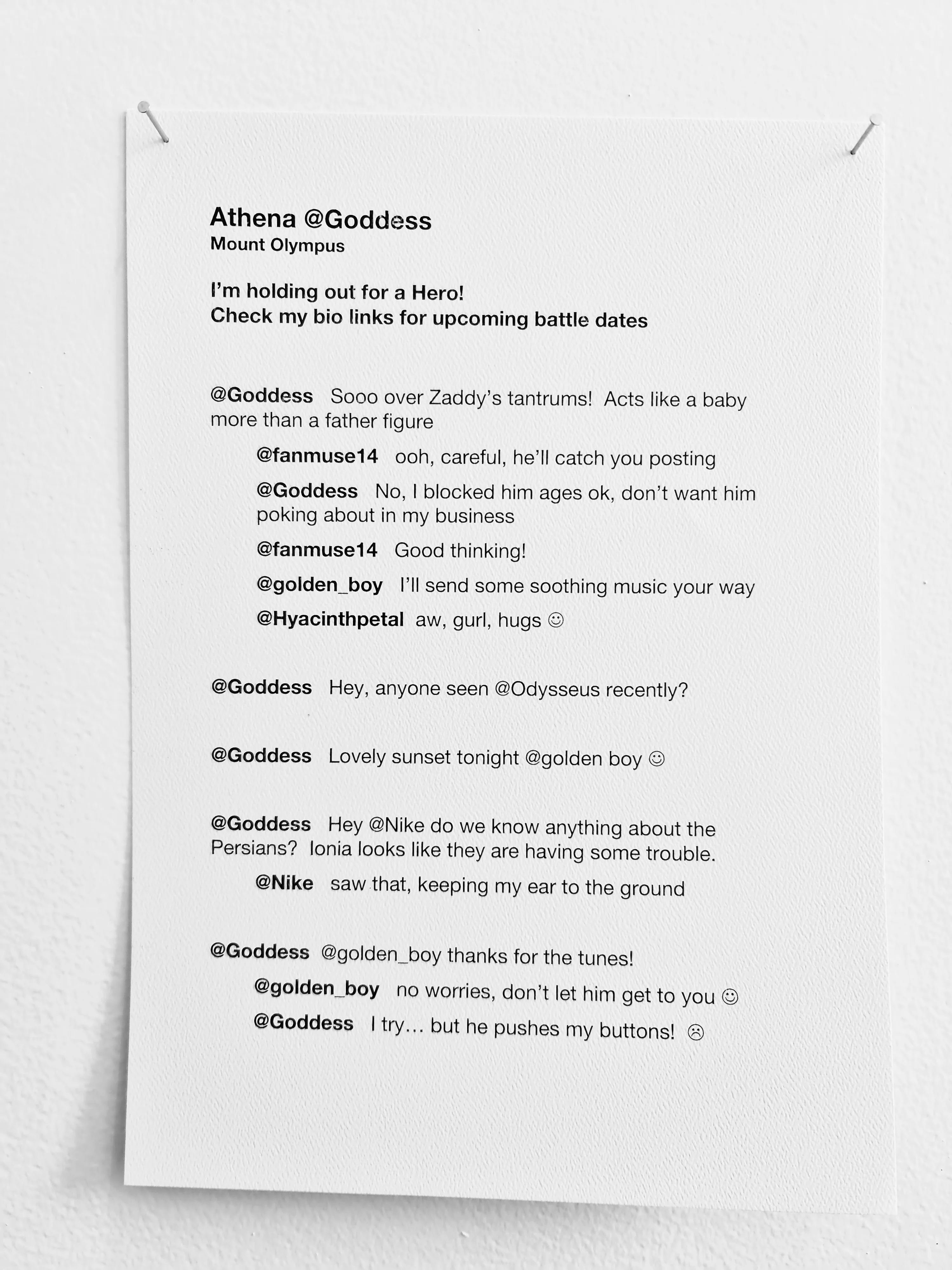
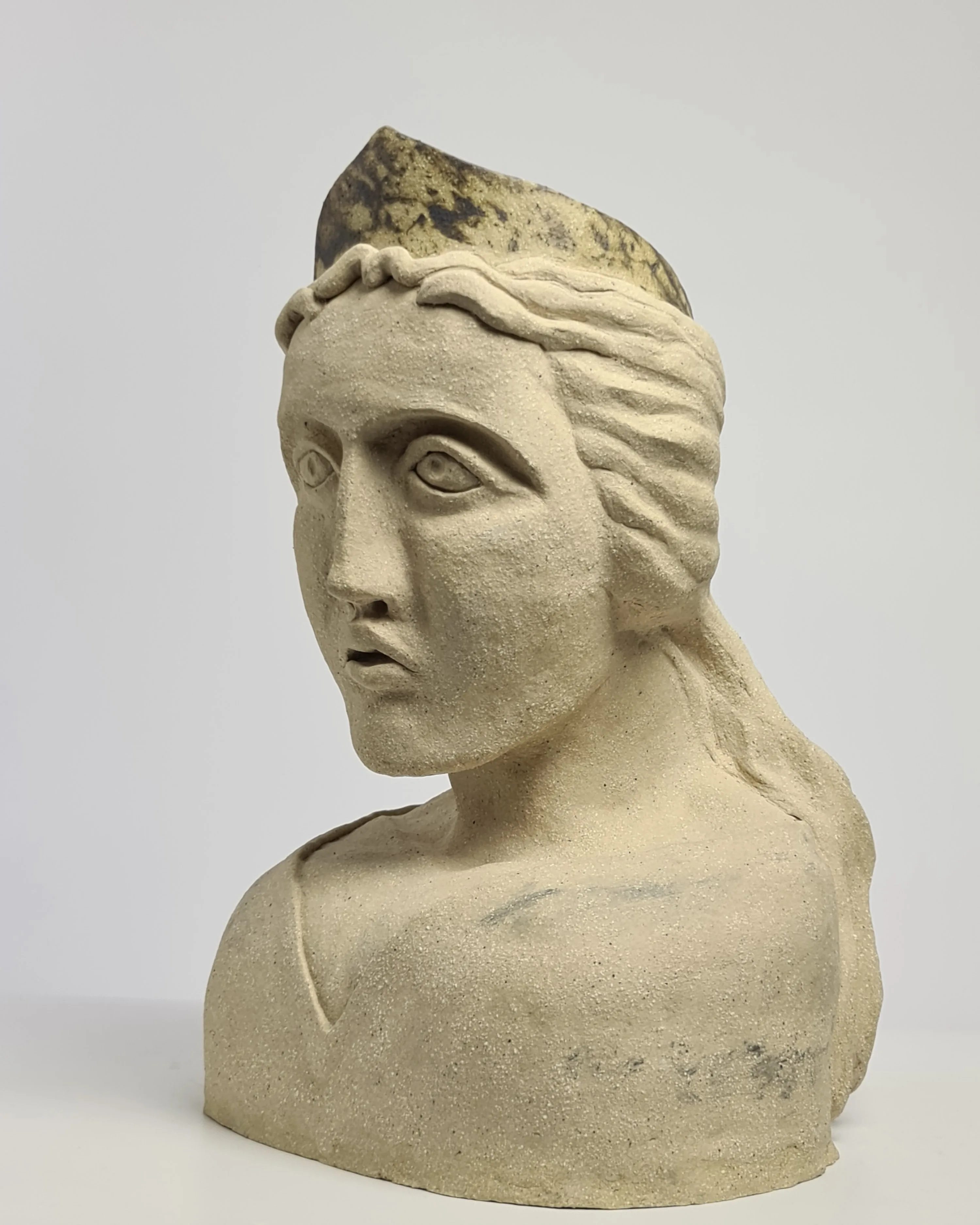
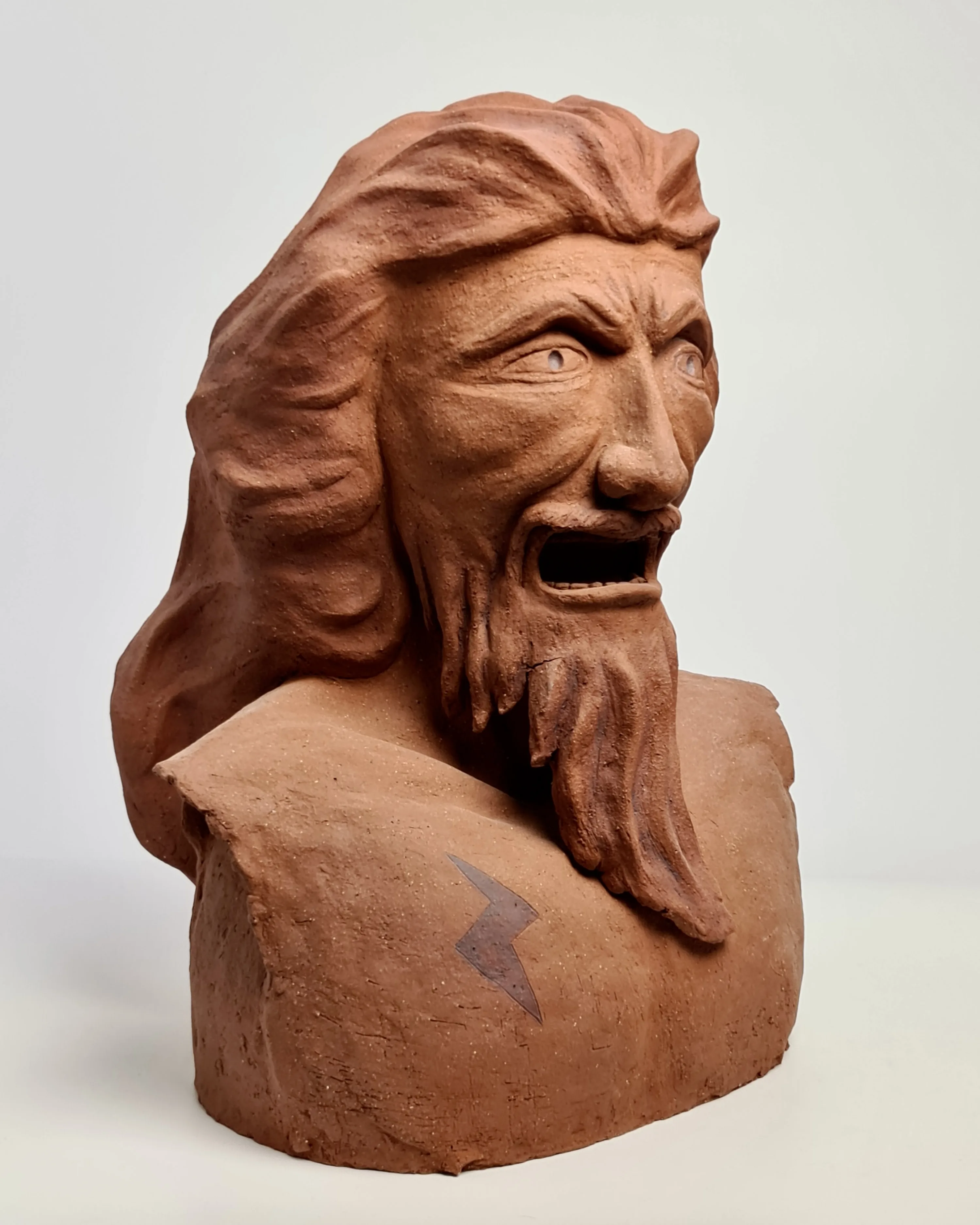
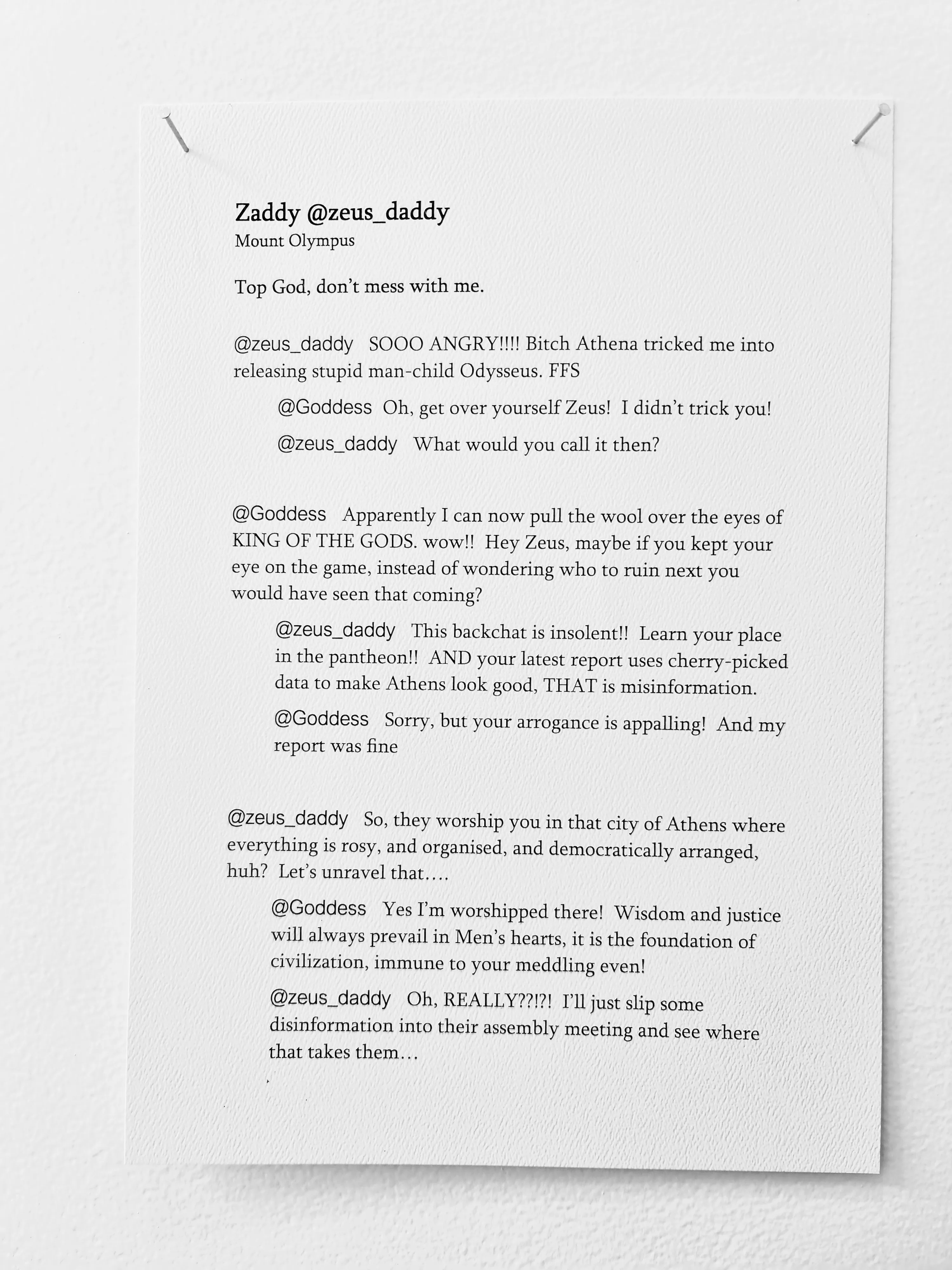
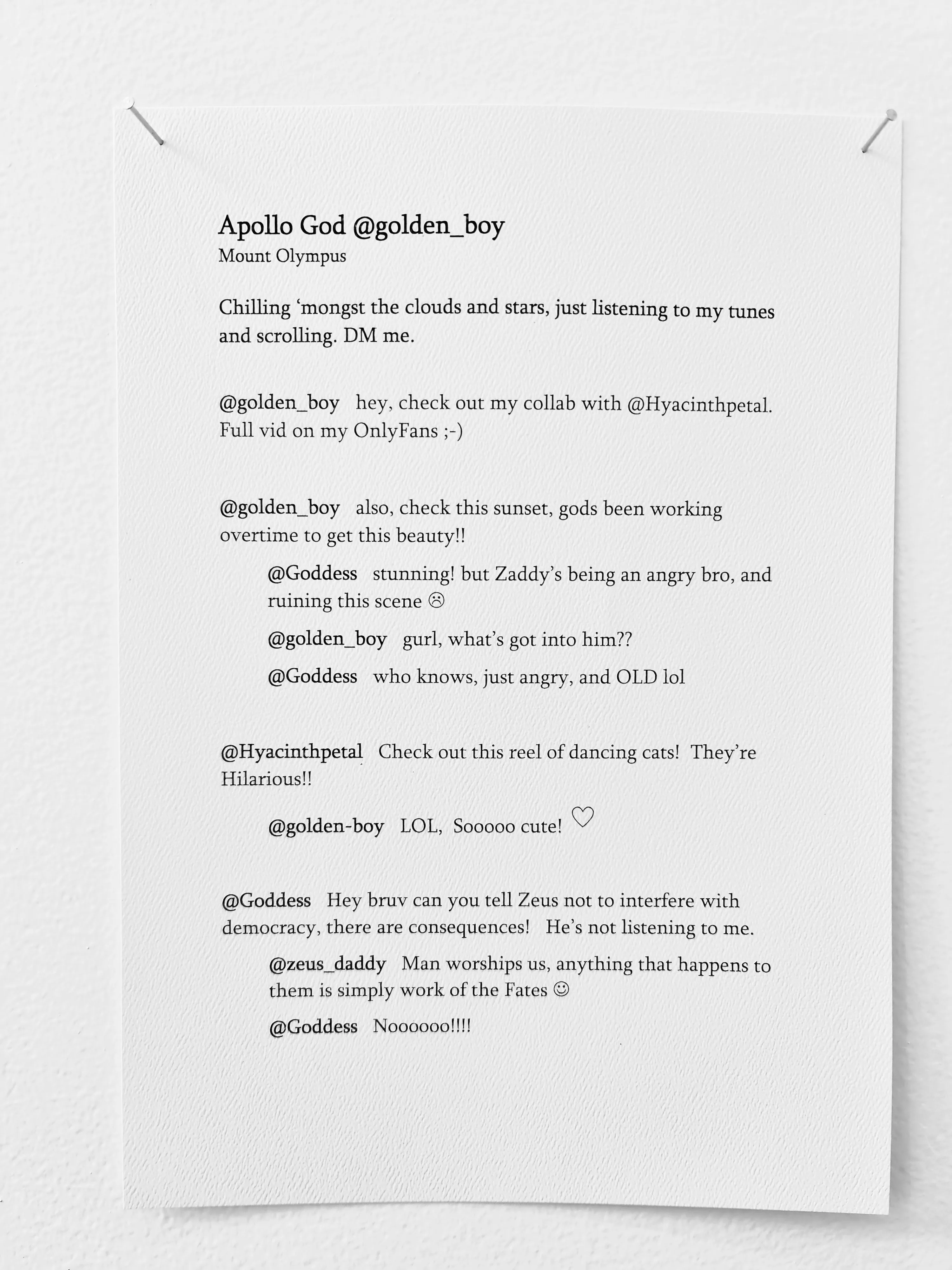
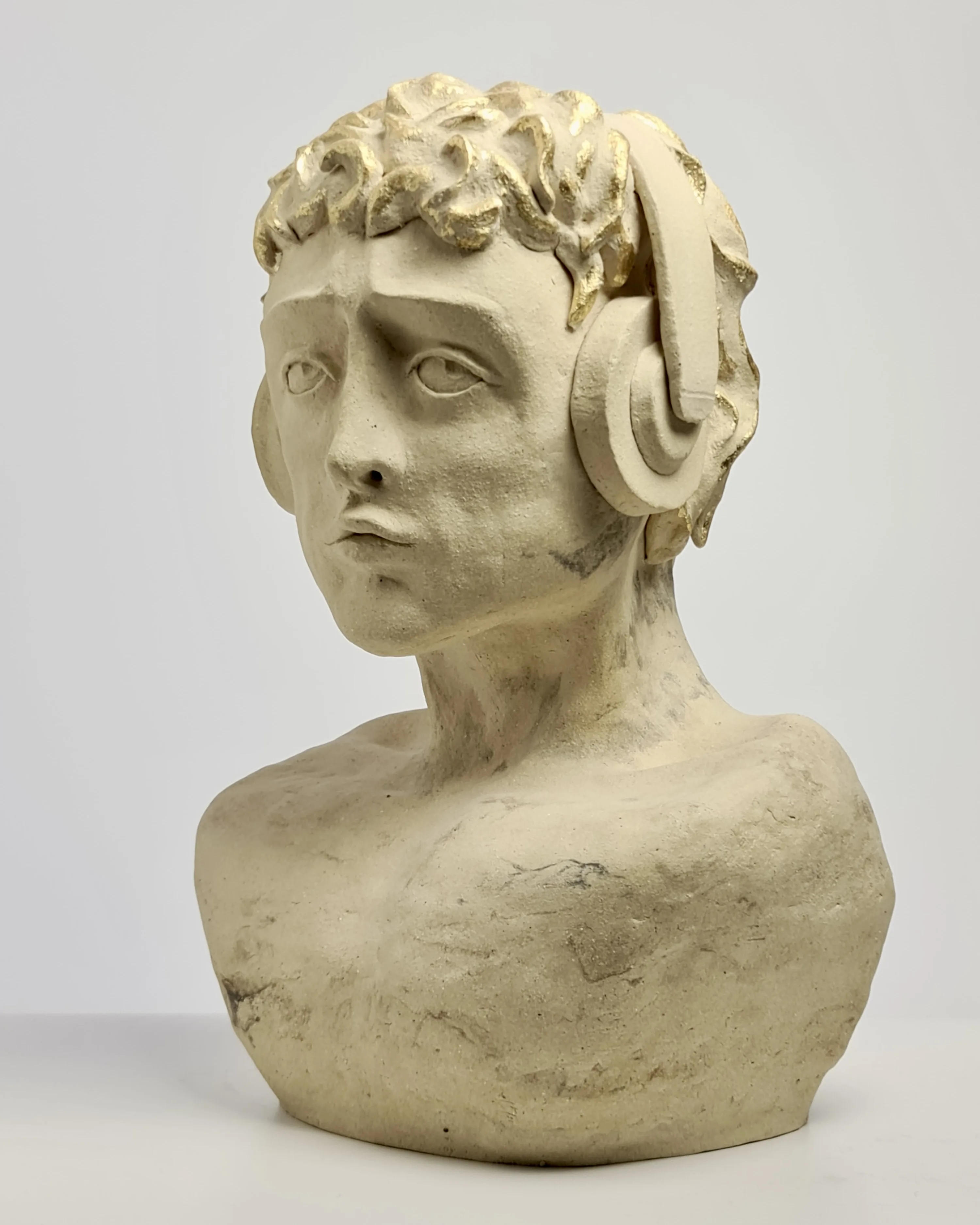
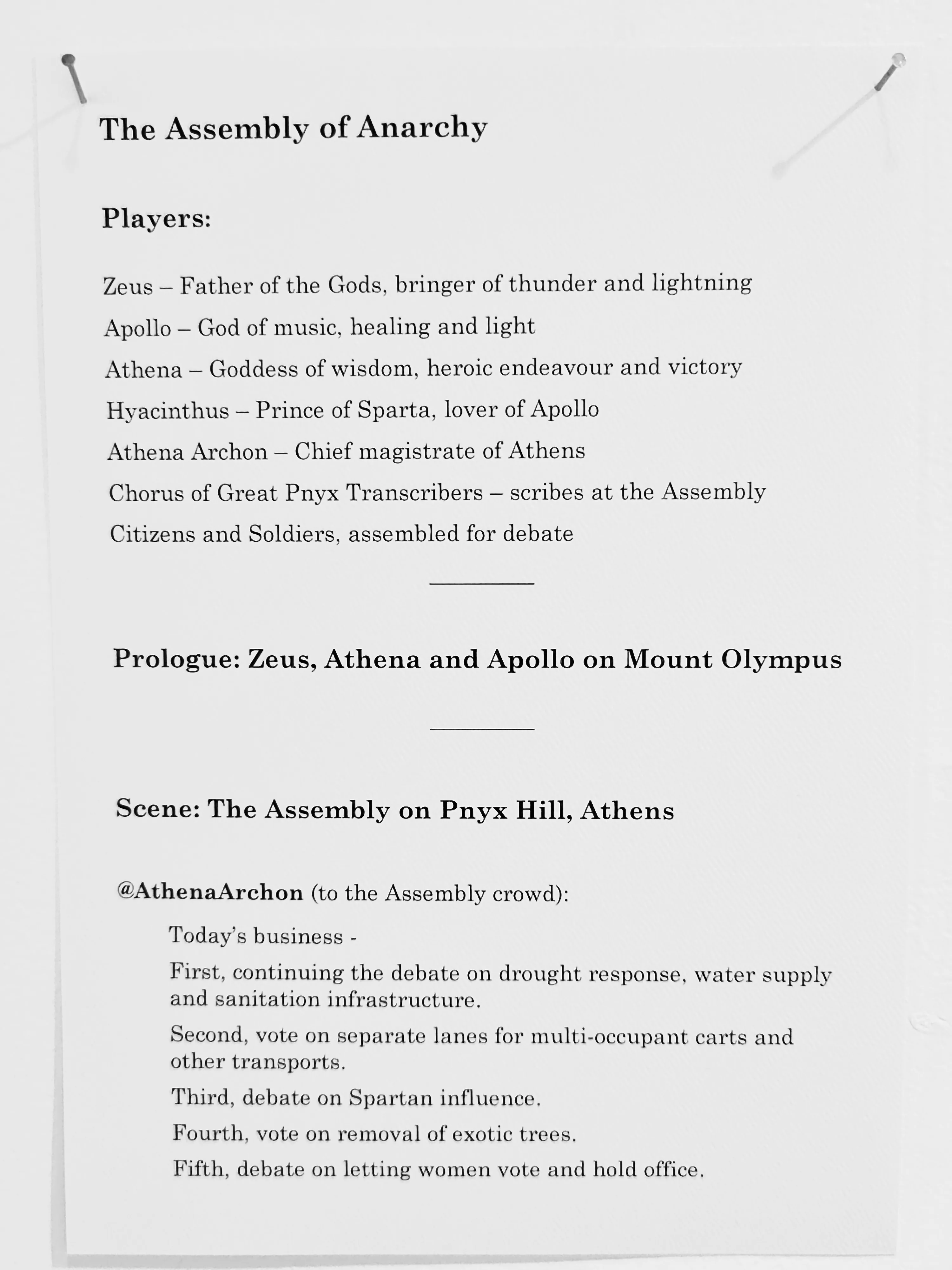
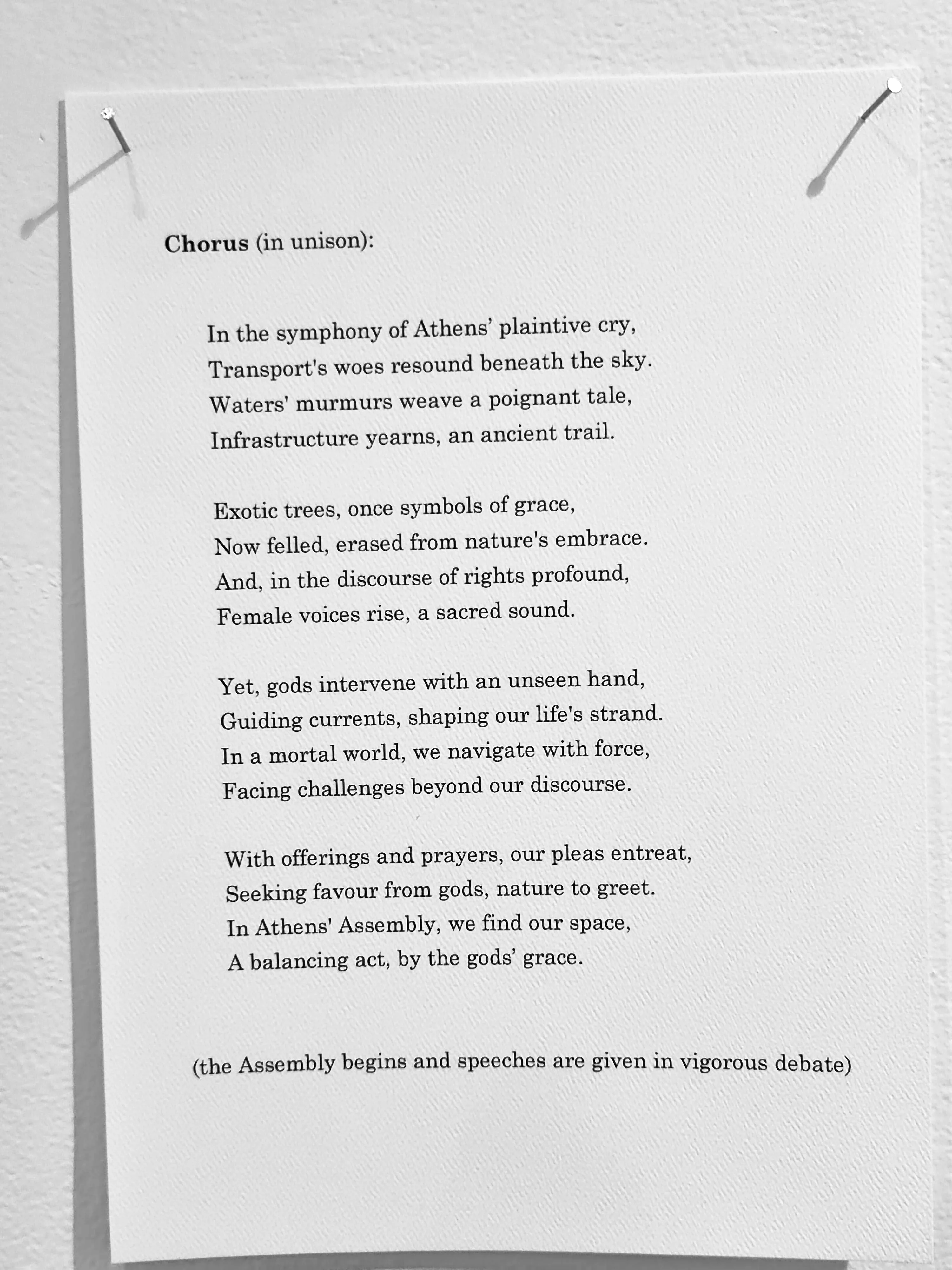

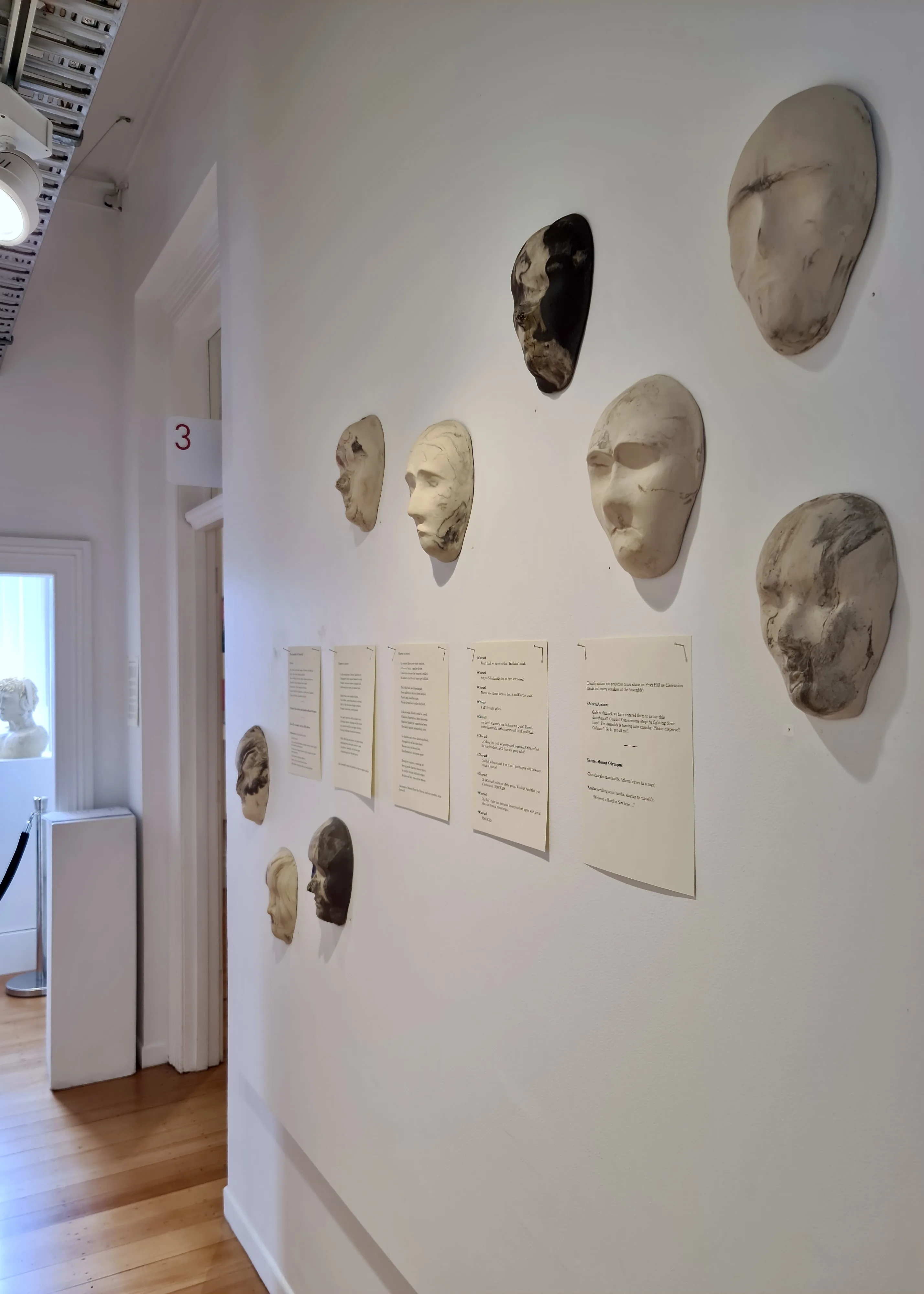
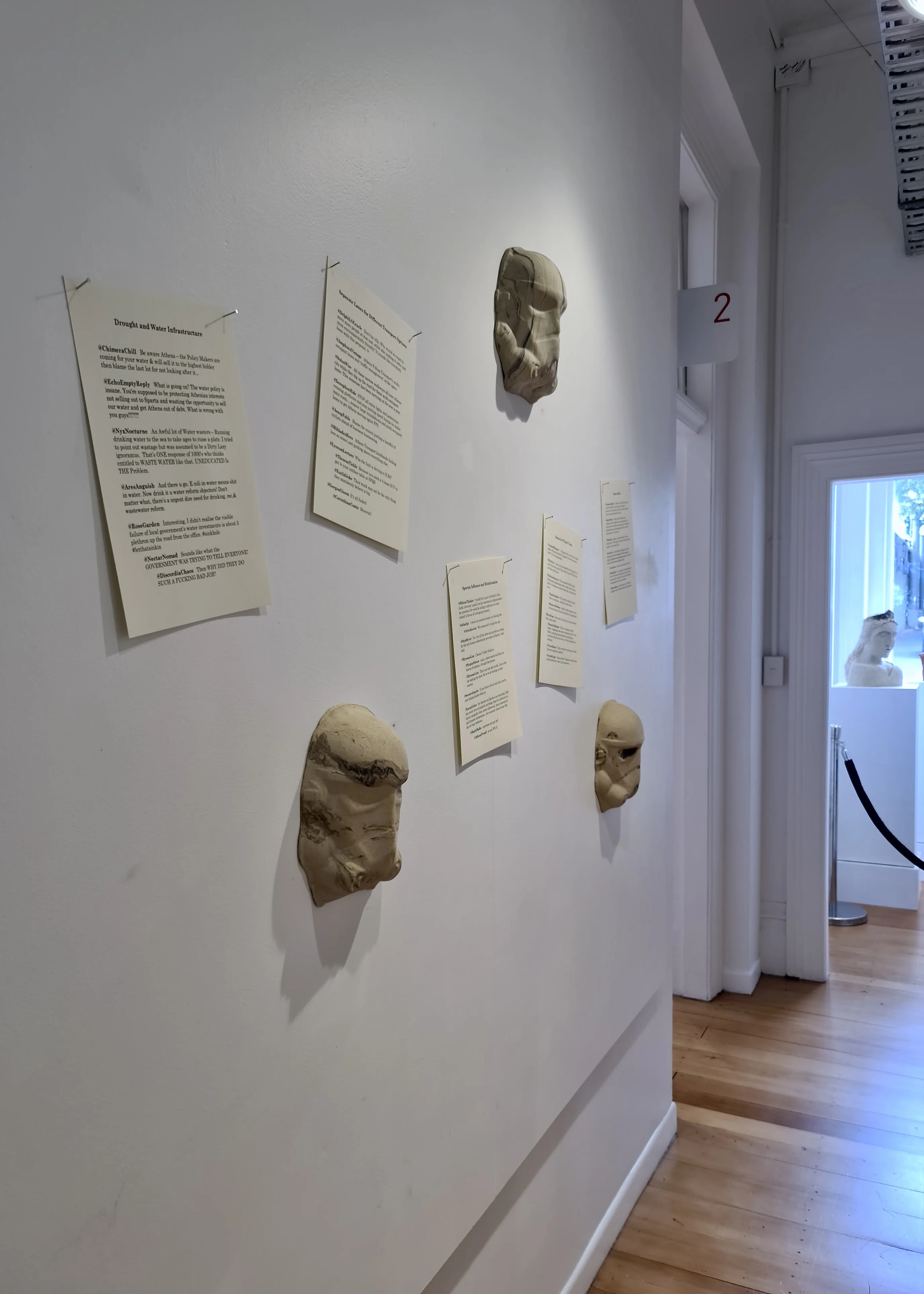

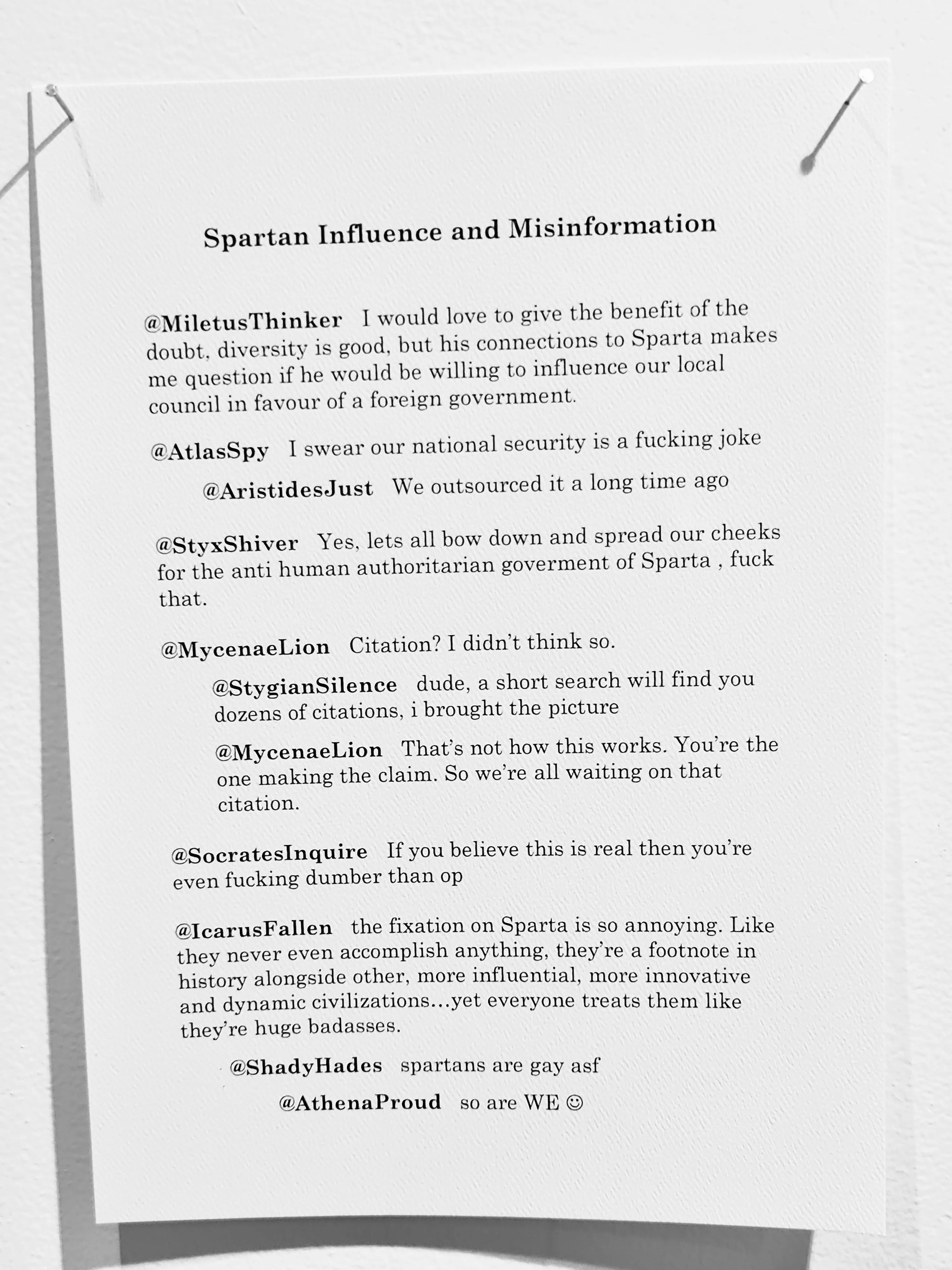
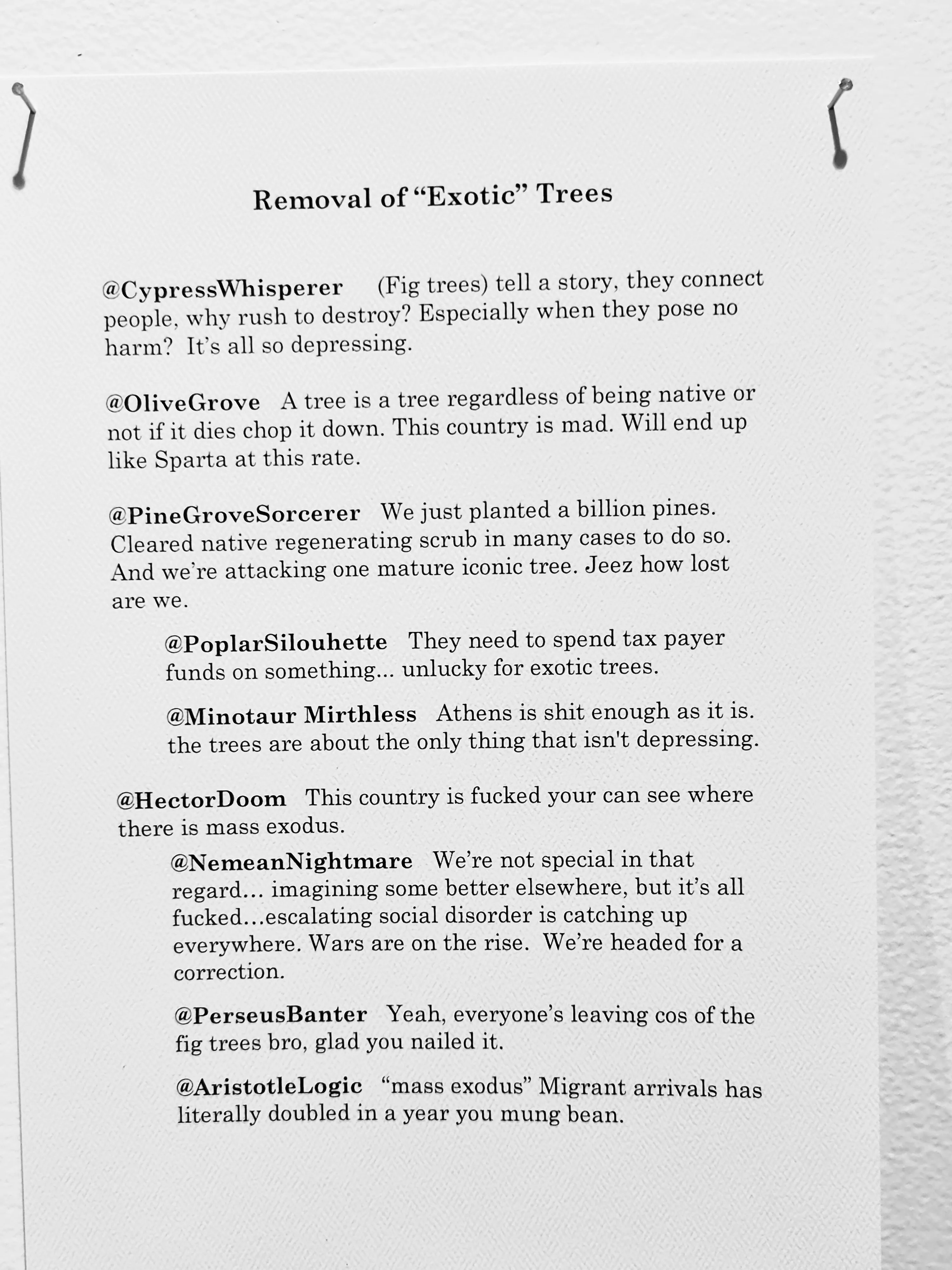
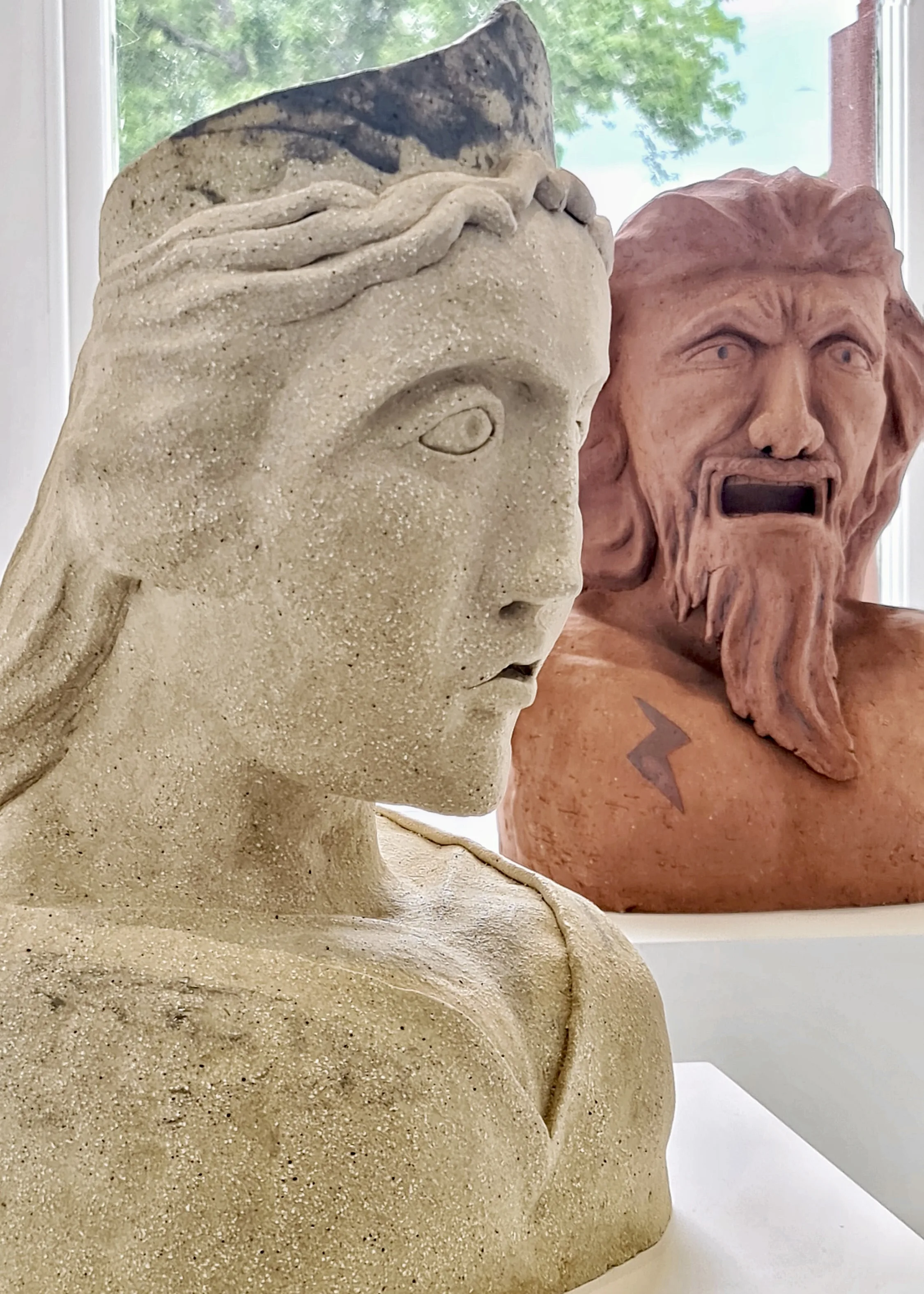
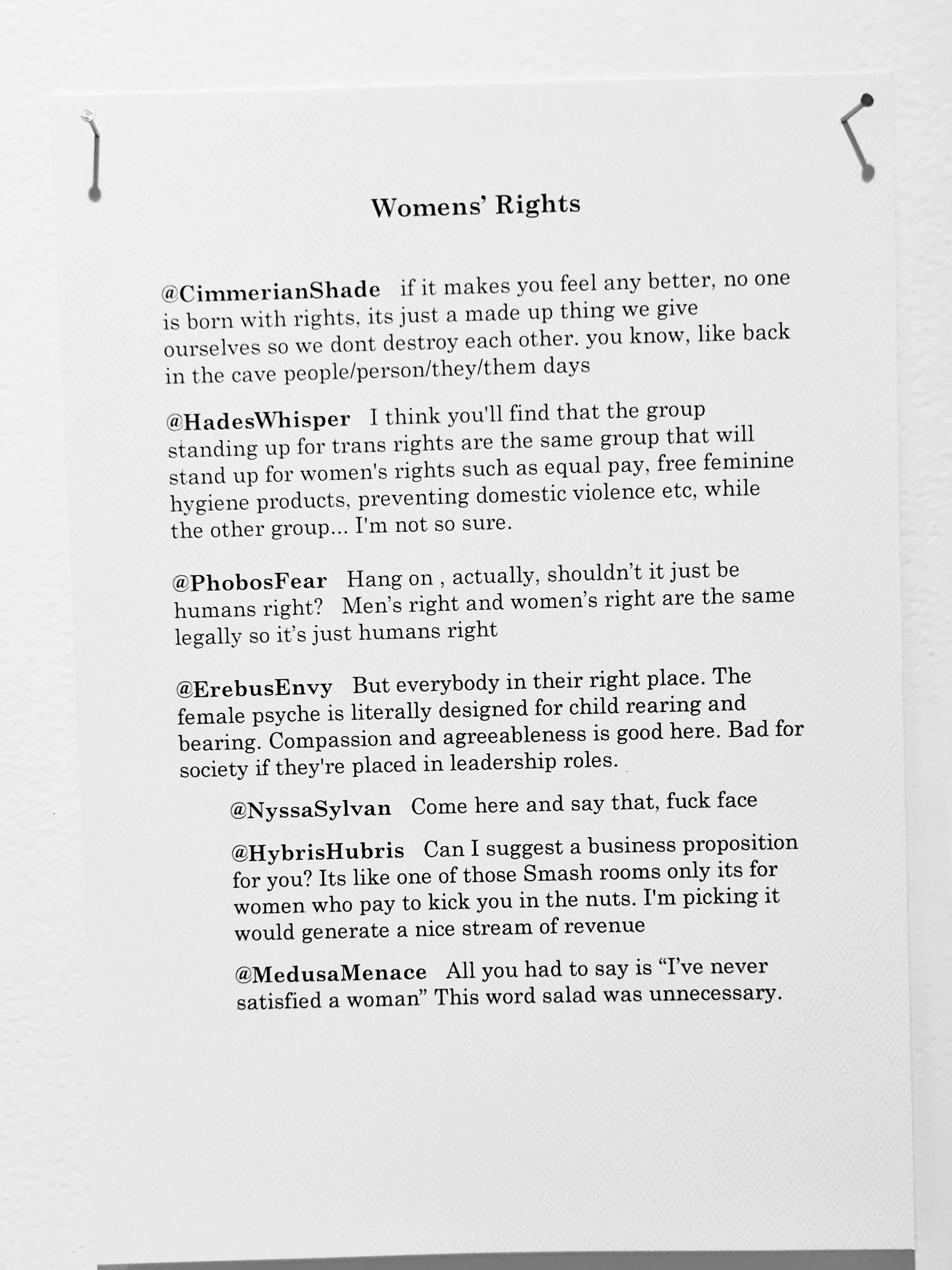
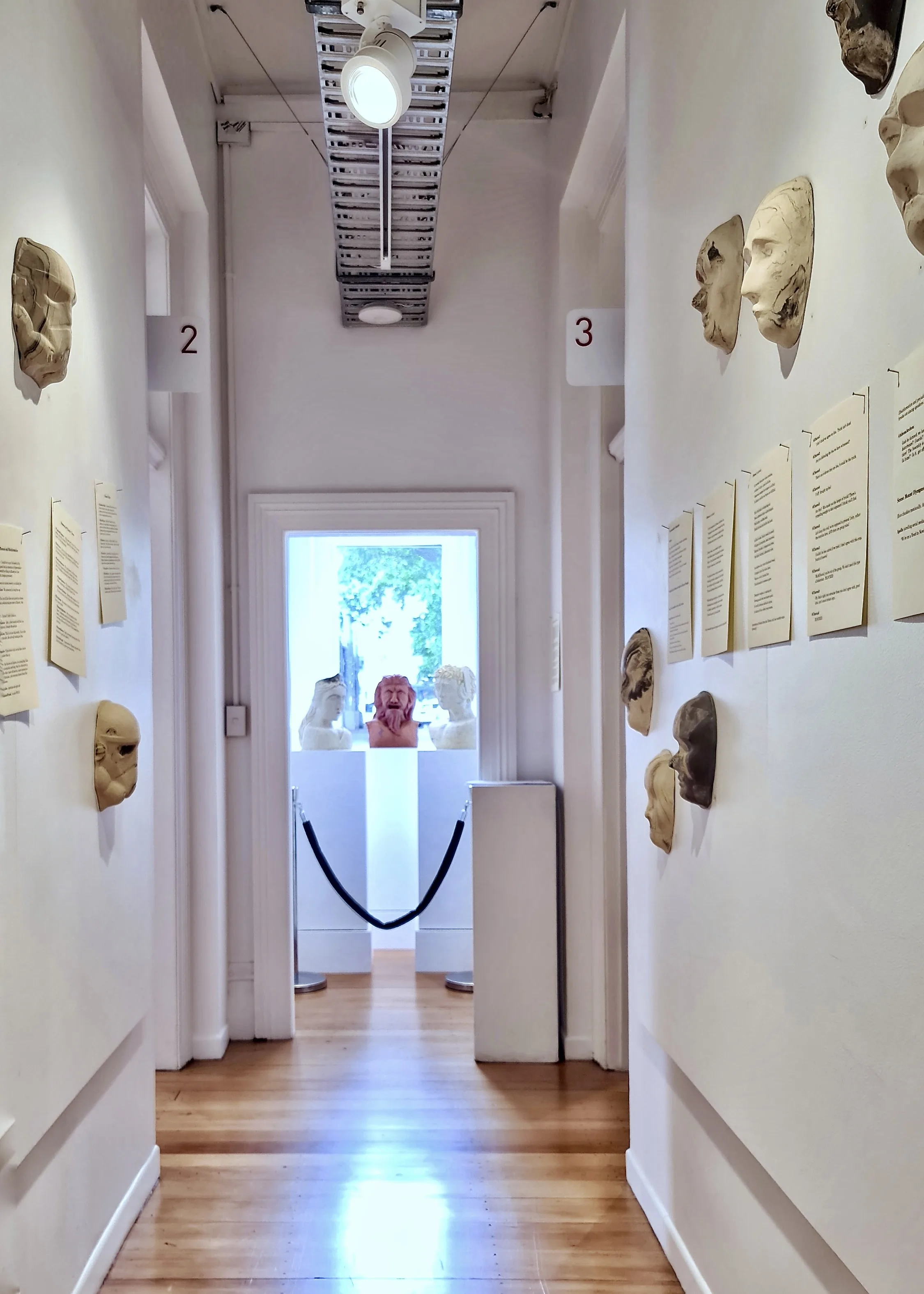
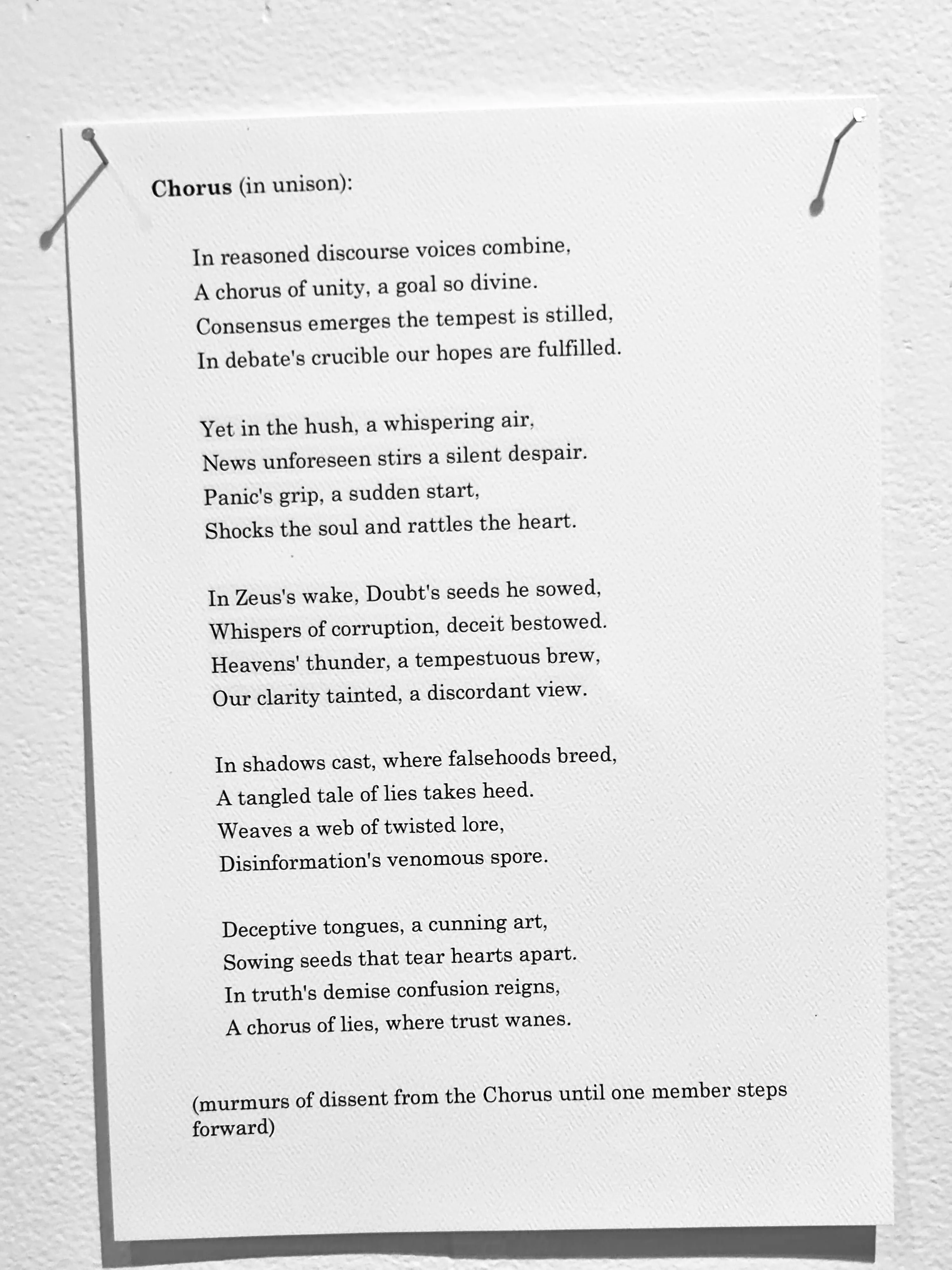
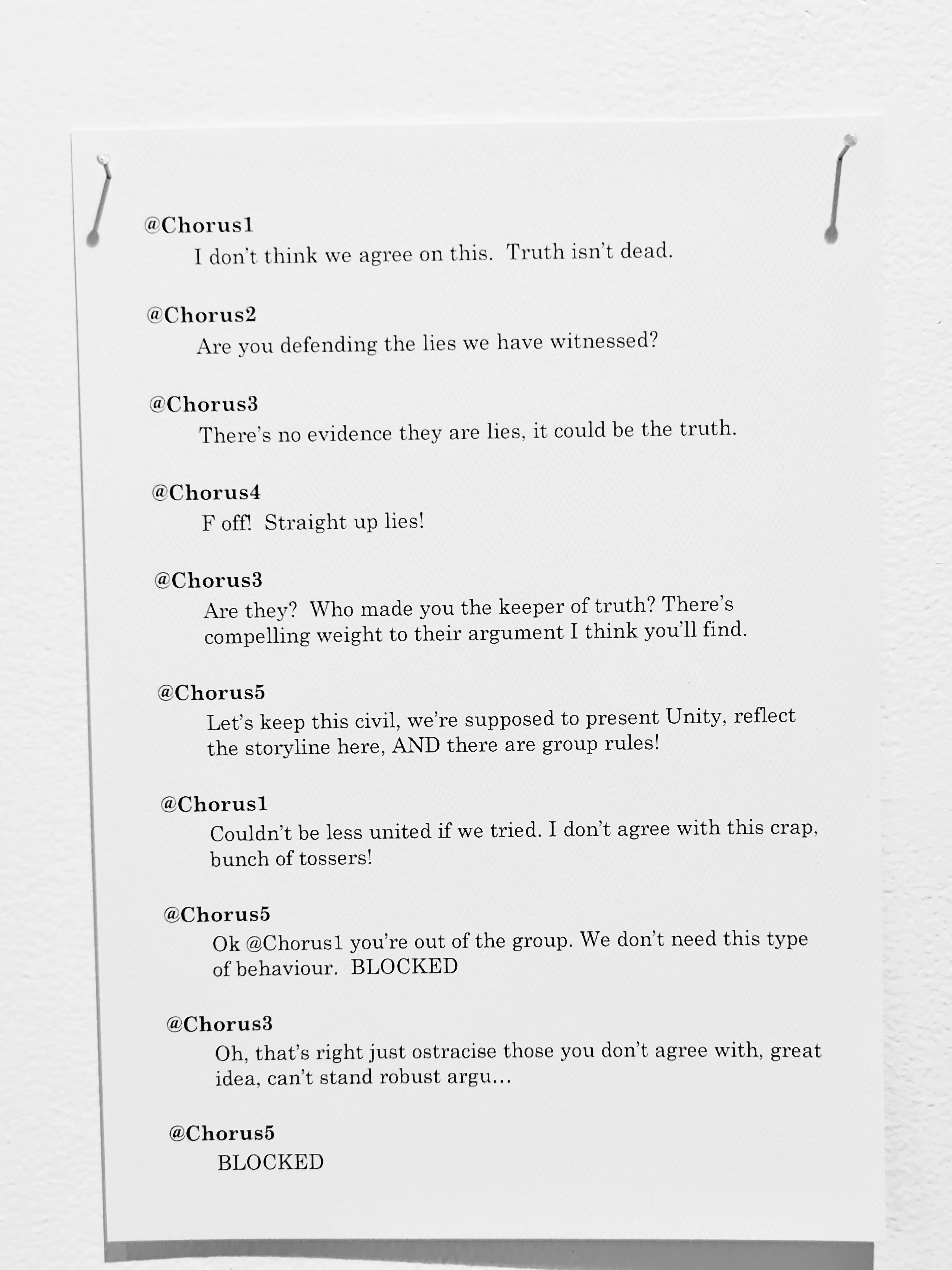

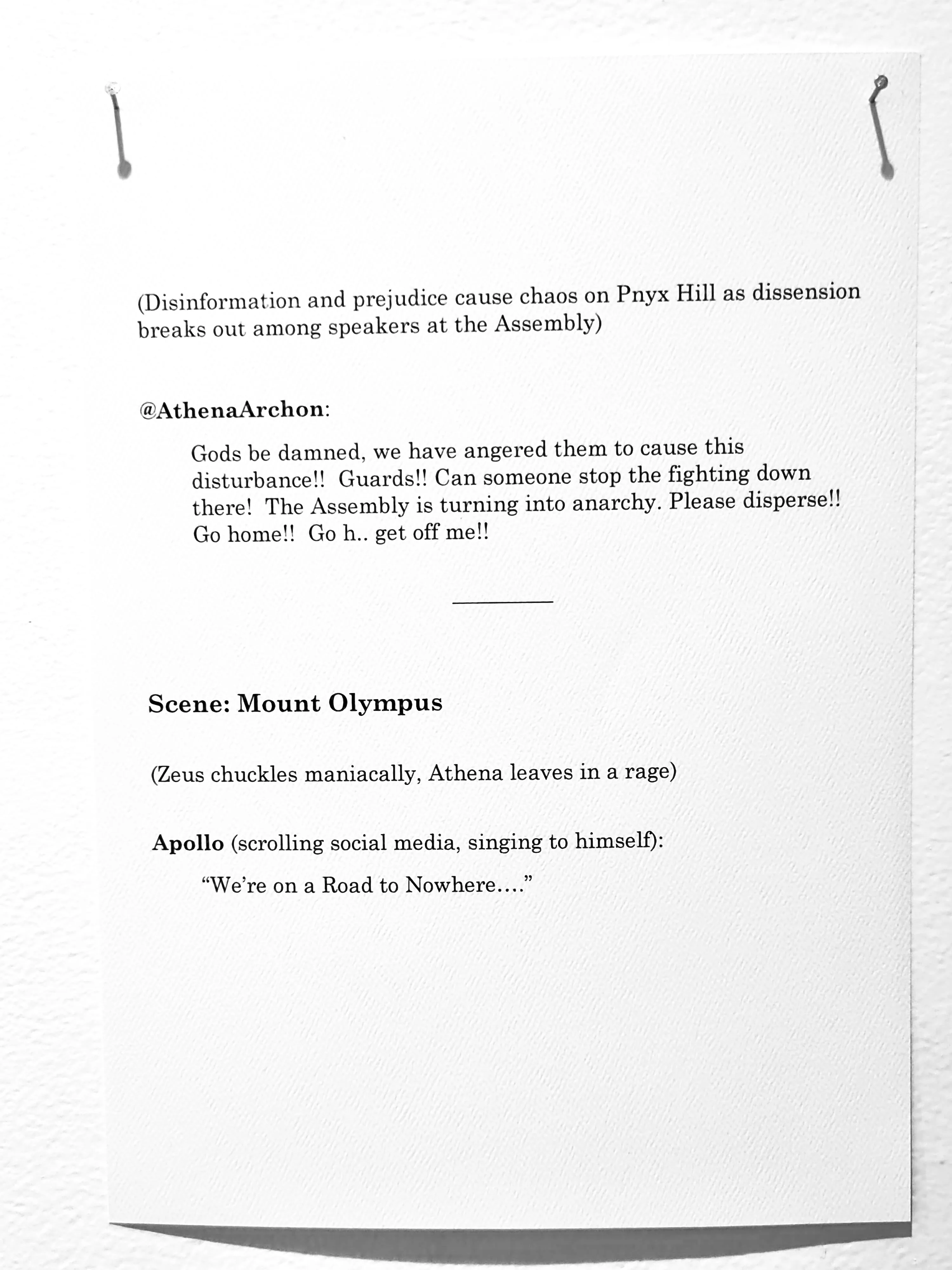
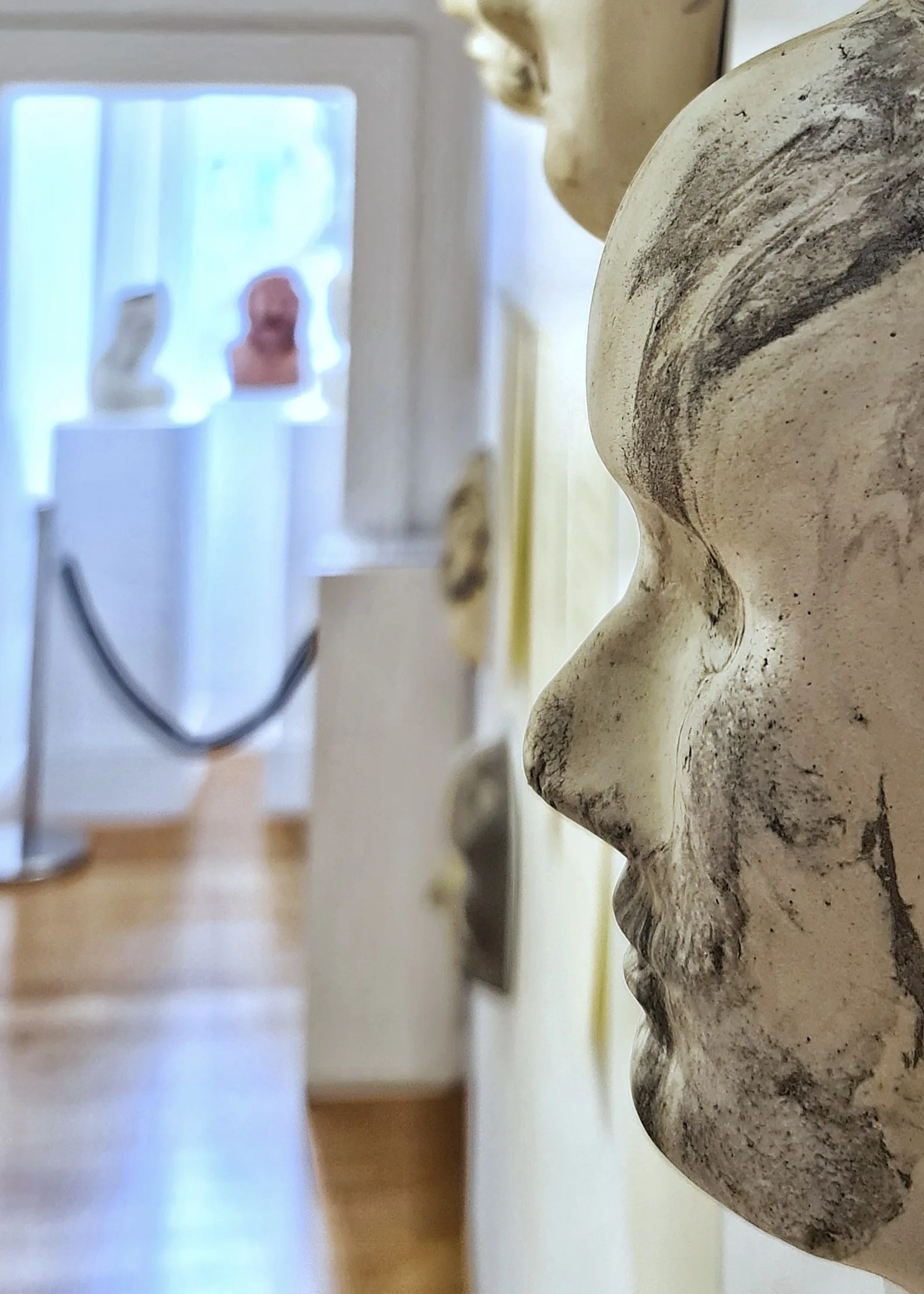
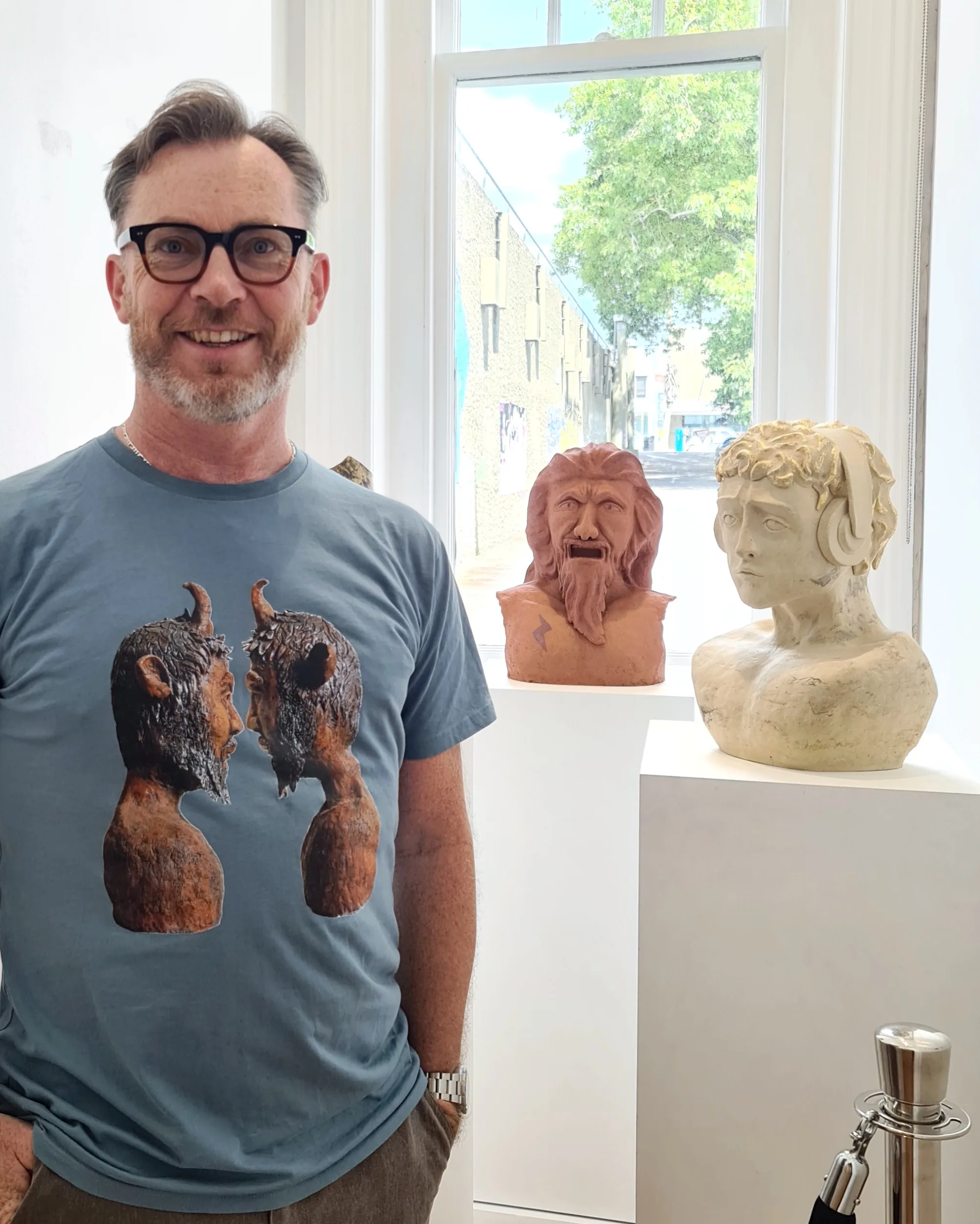
Athenian Democracy came about in 508 BCE as a way for the ruler Cleisthenes to stay in power by giving the ‘citizens’ of Athens the authority to vote and determine how the city was run. Any (male, adult) ‘citizen’ could speak in debate, sit on a jury, or be put forward to represent their area on the governing body. Tens of thousands of Athenian men acquired experience in civics through taking part. Eligible ‘citizens’ were approximately a quarter of the Athenian population (women, children, slaves and foreigners were not given these rights).
The ability to speak was there, but the ability to captivate an audience and make them listen was down to the individual’s oratory skill. Hence privilege, education and experience played a large role, which of course led to corruption.
Not only did citizens have the ability to vote on matters of running the city, they could also vote to ostracise anyone from Athens for a period of ten years, effectively cancelling them.
This system of direct democracy lasted for 180 years and the Romans and most civilisations since have favoured “representational democracy” as their form of democratic rule.
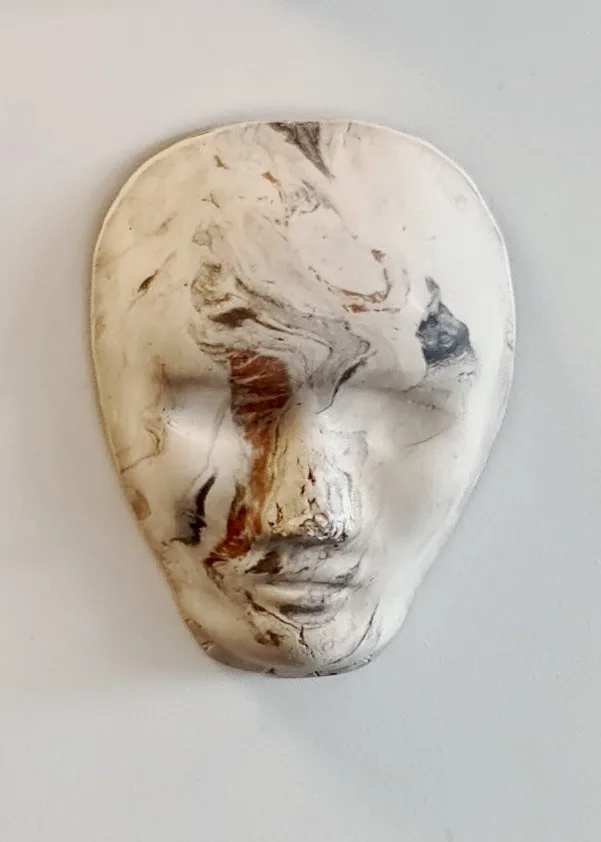
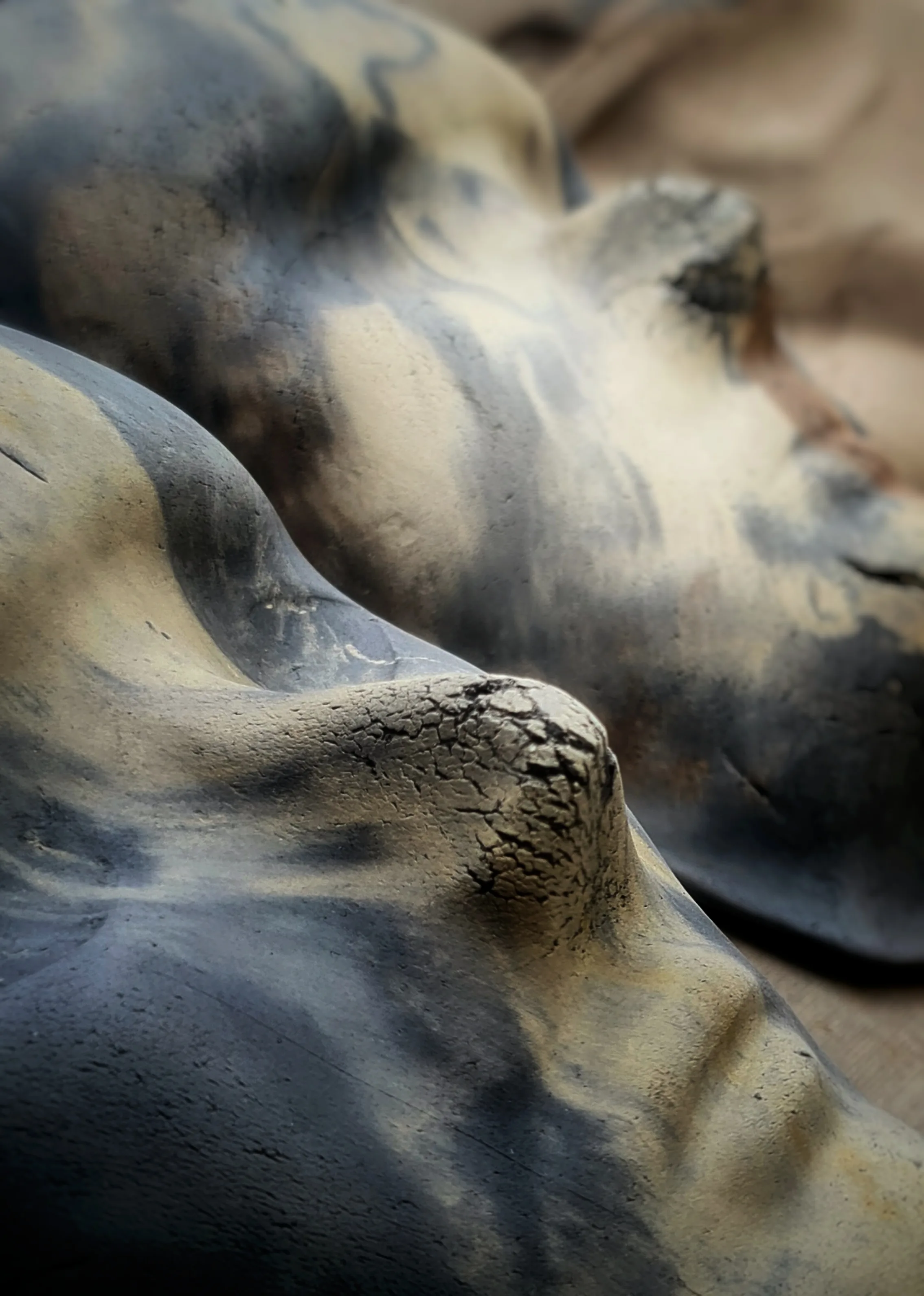
Around the same time, Greek comedy and tragedy were in their heyday, reflecting on societal issues and the human experience. Their enduring impact on literature, theatre and culture provided a foundation for dramatic storytelling, influencing playwrights, philosophers and thinkers for centuries.
A key ingredient of the Greek play is the Chorus, a group of performers presenting a single, united voice which sets the scene, or summarises the action/themes/emotions depicted in the dialogue. Often this is in song or ode form.
The role of the Chorus reduced by the Roman period as character development and individual dialogue took over.
